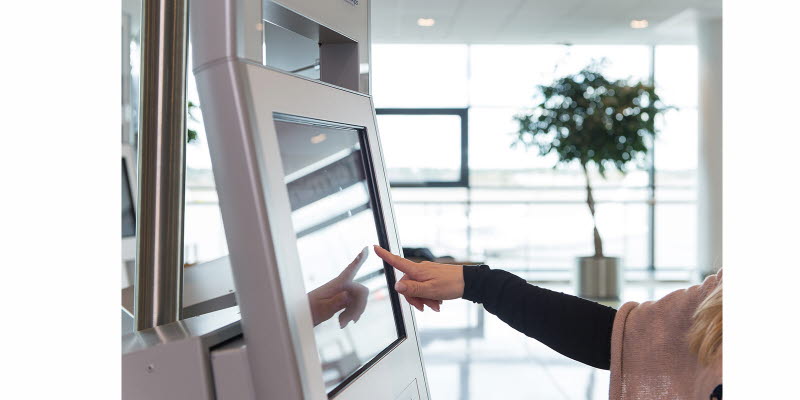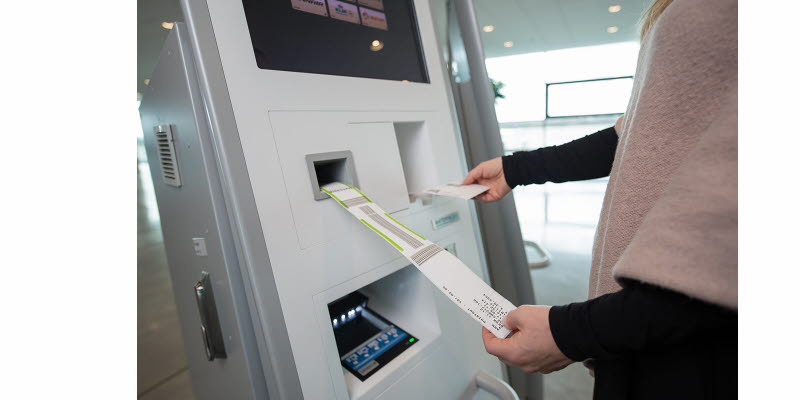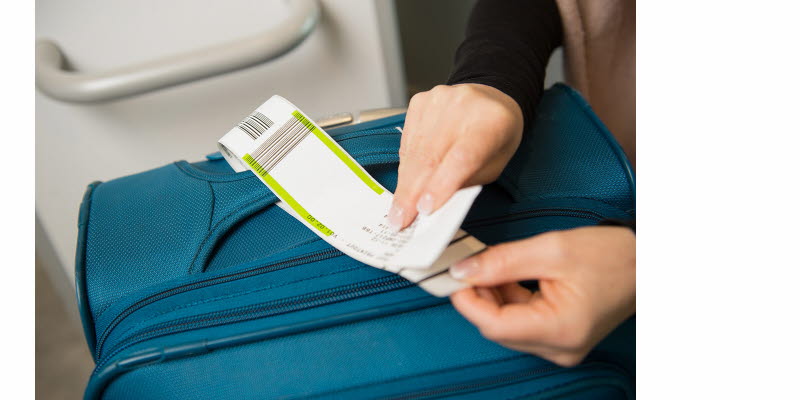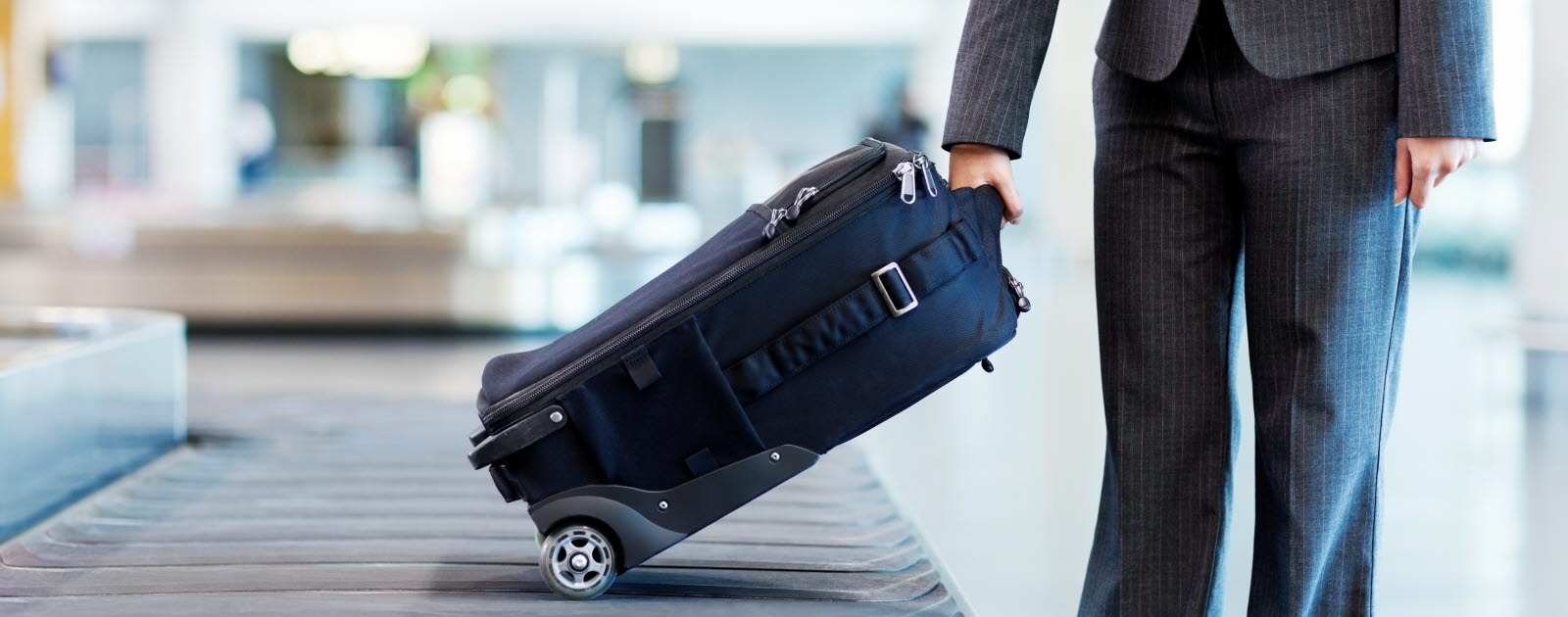Baggage
All you need to know about how to pack and prepare your baggage and if your baggage is delayed or lost.
Frequently asked questions
Delayed or lost baggage
Has your baggage been delayed or not arrived? Then contact your airline’s baggage service, that is, whoever handles their baggage at the airport.
Here you will find the luggage service belonging to each airline and how to get in touch with them.
Please note: Contact your airline's baggage service at the airport you traveled to.
Hand luggage
Check with your airline how how big your hand luggage can be and how much you can take with you on board.
Liquid medicine, baby food and special diet food that you need on your journey must also be shown at the security checkpoint, but you do not need to place it in a resealable plastic bag.
These regulations do not apply to liquids that are packed in your checked baggage. Be sure to pack the liquids well. If there is any damage because a bottle breaks in your baggage, you will not be compensated.
Containers with liquids must be placed in a transparent one-litre resealable plastic bag. Each container may hold up to 100 millilitres. You may take as many containers with you as there is room for in the plastic bag, and you must be able to close the bag. Examples of containers are bottles, jars and tubes.
Remove the bag with liquids from your hand baggage and place it so that it is clearly visible in a tray on the conveyor belt at the security checkpoint.
Check in baggage
Will you check in baggage?
- If you’re checking in baggage, make sure you’re at the counter when check-in opens.
- Go to an automated check-in machine in the departure hall so you can print your bag tags. Check out this video to see how you attach your bag tag.
- Then drop your bag at the bag drop counter. How you use the bag drop.
Are you travelling with special baggage?
If you have special baggage, you must first go to the airline's check-in counter. There you will receive a label and instructions on where to hand in your special baggage.
Are you travelling only with hand baggage?
If you’ve already checked in, have your boarding card and only have hand baggage, you can go straight to the security checkpoint. Read more here about how you get ready for security screening.
In some cases, you can check in your baggage on the same machine you use to check in.
- Enter your booking reference using the touch screen and follow the instructions.
- Your boarding card and bag tag(s) are printed out when you’re finished.
- Attach the bag tag(s) to all your baggage for check-in. Fasten the tag around the handle of the bag with the bar code facing out. Don’t forget to save your baggage receipt..
- Then drop your bag off at the bag drop counter.
If you have special baggage, you must first go to the airline's check-in counter. There you will receive a label and instructions on where to hand in your special baggage.
Do not forget to label your bag, preferably on the inside as well. If your baggage is misplaced, you can mention that there is a name and address label inside the bag, which simplifies identification.
Remove or tie any straps, strings or belts on your baggage before you check in to reduce the risk of them getting caught during the sorting process. Hard-sided baggage should not have any extra straps around it because they can slide off, and get caught during transportation.
If you want to bring and check in extra baggage beyond what is included in your ticket, please contact your airline.
Medical products
Liquid medication does not need to be placed in a plastic bag like other liquids. But remember to pack your bag so that you can easily show them at the airport security control.
You may take as much nonprescription medication (lens cleaner fluid, cough medicine, nose spray etc.) as you require during the actual flight. But you can take with you the entire amount of nonprescription medication that you need during your trip away if you are unsure if the product can be purchased at the destination, or alternatively if it only exists in larger packages.
You may take in your hand baggage as much prescription medication as you require during your trip away.
If you are travelling from Sweden to countries outside of the EU/EES zone, you should contact the destination's embassy for information about which regulations apply for bringing in narcotic medication. You must be able to prove that the medication carried with you is intended for private and medical purposes only, with for example a doctor's certificate in a suitable language. You can also contact the airline with which you are travelling to find out what applies.
Certification is required to bring in narcotic medication.
When bringing narcotic medication for own private use into EU/EES countries, you must be able to show a certificate that proves your right to take the medication with you. This applies regardless of whether you have the medication in your hand baggage or checked baggage. Narcotic medication includes many sleeping pills, tranquilizers and strong painkillers. Contact your chemist to get a so-called Schengen certificate issued.
Contact a chemist or the Swedish Medical Products Agency if you unsure whether your medication is classified as a narcotic in Sweden. Narcotic classifications can differ between countries. LIkewise, the regulations that exist for bringing in these medications can vary from country to country. Contact the country's embassy for further information.
Regulations for tax-free shopping and liquids
You may shop for tax-free goods in shops located after the security checkpoint and take them on board your flight, even if the jar or bottle holds more than 100 millilitres.
Keep in mind that regulations may vary for liquids in your hand baggage on your journey back to Sweden and to other EU countries. Find out what applies for your journey.
You can purchase liquids in shops after the security checkpoint and take them in your hand baggage on your journey. Make sure that the shop seals the bag so that it is possible to ensure that no additional containers have been placed in the bag after your purchase.
Also be especially careful about the bag when changing planes at another airport within the EU: liquids purchased in a tax-free shop at the airport may be taken with you, together with the receipt, as long as the liquids are sealed in a special bag after they have been purchased. Do not open the bag before you have reached your final destination.
You may not take liquids that you purchased from a tax-free shop in Sweden in your hand baggage through the security checkpoint you go through when you continue your journey in the US.
Purchasing tax-free items should not be a problem when you transfer in another EU country and take your purchases on your journey to the US if you are not changing planes in the US. Check with your airline just to be sure that stricter regulations do not apply in that EU country.
Countries outside the EU may have different regulations for liquids. So contact your airline to find out what applies.
Special baggage
Special baggage is, for example, children’s strollers or pushchairs, golf bags, bicycles or skis, but can also be backpacks with loose straps and bags that are either too big or too small. Contact your airline or charter operator for exact measurements and rules. You may also need to pre-book your special baggage 24 hours before departure – check what your airline company recommends for your trip. If you have special baggage, you must first go to the airline's regular check-in counters. There you will receive a label and instructions on where to hand in your special baggage.
You need to place the children's stroller in a plastic bag. These plastic bags are sold at the information counters.
If you are flying with special baggage, you need to drop it off at a special drop-off point. These are located adjacent to the check-in area where the sign “Special baggage” is displayed.
What to do:
- Check in first as usual, either using an automated check-in machine or at a counter, and attach the bag tags to all your baggage – even your special baggage.
- Drop off your other baggage at a check-in counter. If you are travelling with special baggage, it is most practical to drop off your other baggage at a check-in counter since the skis must be weighed at a counter before you drop them off at special baggage.
- Drop off your special baggage at the designated drop-off point for special baggage. These points are staffed by employees who will also do an x-ray screening of your special baggage.
When you return home, you pick up your special baggage at the specially designated pick-up spot for special baggage adjacent to the baggage carousel where your other baggage is arriving.
Yes, but you should always notify a staff member in check-in if you're travelling with an avalanche backpack. For security reasons, only a limited number of gas cartidges are allowed on the flight. You could be asked to leave your gas cartridge behind.
Bagdrop
With Bagdrop, you check in your baggage yourself quickly and easily. Check with your airline if they offer bag drop and how far in advance you can leave your luggage.
Instructions:
- Place your bag on the conveyor belt (one bag at a time).
- Follow the instructions on the screen. Start to scan your baggage tag.
- Wait until you see that the bag is carried along on the conveyor belt.
- Once check-in is complete you get a confirmation on the screen.
- Now you are ready for the security check.
Special baggage, such as golf equipment or a pram (baby carriage), cannot be checked in at Bagdrop. You should instead go to a staffed check-in counter.
Self-service step by step

Enter your airline company and booking reference. Follow the instructions.

Your boarding card and baggage tag(s) are printed once you’re done.

Remove the baggage receipt and save it. Attach a baggage tag to all bags.
